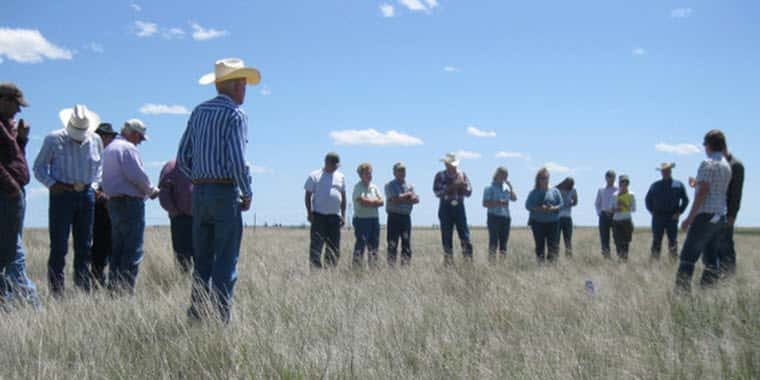Celebrate National Day of Agriculture with MSU and Montana
March 15, 2016 is National Agriculture Day. Across the country and at home here in Montana, many growers, organizations, government agencies, universities and families are joining together to celebrate the abundance provided by American agriculture. We have much to be thankful for. Montana agriculture remains the cornerstone of the state’s economy. It continues to shape us in a state blessed with diverse and vibrant landscapes, dedicated people and rich natural resources.
[EasyDNNGallery|3774|Width|300|Height|300|position|left|resizecrop|False|lightbox|False|title|False|description|False|redirection|False|LinkText||]We salute and honor the people across the state who are leading and delivering agriculture in Montana: from certified seed growers and sellers, large acreage and small acreage production, family businesses and those who continually endure the risk, challenge and uncertainties of the climate and markets. Thank you for your commitment to an industry and economy that demands an investment and dedication that’s only second nature to most Montanans. Perhaps that’s why Montana is comprised of 27,800 farms and ranches (65 percent of our land base), contributing $4.4 billion dollars a year to the United States’ economy.
Montana State University and its College of Agriculture will celebrate their 125th anniversary in 2018. We continue to see students from all walks of life enroll in our many programs, and we’re proud of our enrollment growth for the 8th straight year. We think the strong student interest in agricultural-related careers reflects the many ways in which agriculture is changing: young people are increasingly concerned with food production and safety, healthy economies, access to nutritional foods, environmental quality and public health—all of which stem from the products we produce and consume.
MSU’s College of Agriculture continues to be recognized nationally for its curriculum, research, fields, farms and faculty. They are a force of people and programs committed to strengthening Montana’s highest grossing industry, and they possess the ability to respond to world challenges. In addition to the college, faculty and staff at the eight research centers under MSU’s Montana Agricultural Experiment Station are able to deliver agricultural solutions through relationships and support from many of you. Because of our sound partnerships with growers and production groups across Montana, we are able to focus on the most critical needs of the industry.
Of course, we in agriculture continue to face major challenges. Water remains a competitive commodity, new invasive pests and plants are making their presence known, and volatile markets and policies create pressure on those working their hardest. On a global scale, the world continues to face food insecurity while Americans at home are hungry even as vast amounts of food are wasted each year. The pressure on our communities and landscapes to meet the challenges and demands of 21st century agriculture is real.
Agriculture—today on this national day of recognition and everyday—is something that touches all of us. I challenge you to reflect on the role agriculture plays in your life. You shouldn’t have to look far to do so. Perhaps this might be buying a Montana-made product, visiting a local market, asking a farmer or rancher about their successes and challenges, or thinking about the important role of food banks in feeding your community. Or, talk to an MSU agriculture student about their own vision for the future. You might be surprised and renewed with optimism.
The beauty of an agriculture community is that it takes everyone to ensure success — whether that’s your own hands in soil or learning more about the sources of your food and products.
Join me as we steward agriculture at MSU and across Montana, today and into the next 125 years.
Source: Charles Boyer is the Vice President of Agriculture, Dean and Director of the College of Agriculture and Montana Agricultural Experiment Station at Montana State University. Boyer has a bachelor’s degree in biology from Eastern Oregon State College, and a master’s and doctorate in genetics, both from The Pennsylvania State University. MSU’s College of Agriculture has approximately 1,028 students with 11 bachelor degree programs, nine master degree programs and four doctoral degree programs from five departments and one division.
images provided by MSU and MSU Extension


